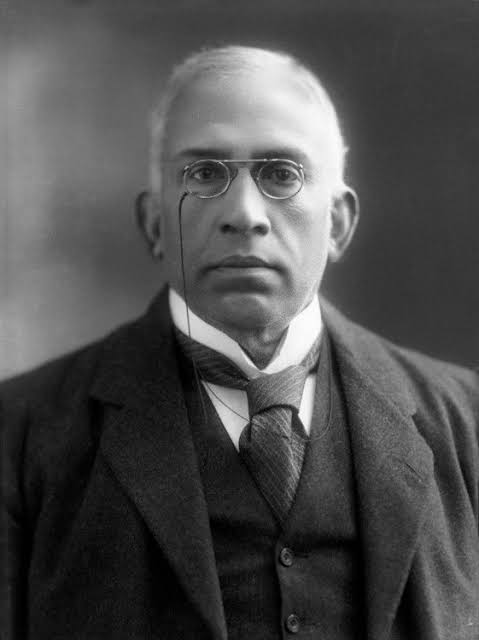Sir Chettur Sankaran Nair | 06 Jul 2021
Why in News
A biopic on Sir Chettur Sankaran Nair will be produced.
- It will be based on the book, ‘The case that shook the empire’ written by Raghu Palat and Pushpa Palat in 2019.
Key Points
- Brief Profile:
- Born in the year 1857 in Mankara village of Malabar’s Palakkad district.
- Known for being a passionate advocate for social reforms and a firm believer in the self-determination of India.
- He was an acclaimed lawyer and judge in the Madras High Court.
- Achievements:
- President of INC: He was one of the early builders of the Indian National Congress (INC), formed in 1885.
- In 1897, he became the youngest president of the INC in the history of the party till then, and the only Malayali to hold the post ever.
- Member of the Raleigh University Commission: In 1902, Lord Curzon appointed him a member of the Raleigh University Commission.
- Knighthood: In 1904, he was appointed as Companion of the Indian Empire by the King-Emperor and in 1912 he was knighted.
- Judge in Madras High Court: He was appointed as a permanent judge in the Madras High Court in 1908.
- Part of Viceroy Council: In 1915, he became part of the Viceroy’s Council, put in charge of the education portfolio.
- President of INC: He was one of the early builders of the Indian National Congress (INC), formed in 1885.
- Role in Freedom Movement:
- As a fervent freedom fighter, he firmly believed in India’s right for self-government.
- Montagu-Chelmsford Reforms: In 1919, as part of the Viceroy’s Executive Council, he played an important role in the expansion of provisions in the Montagu-Chelmsford reforms.
- It introduced a system of dyarchy in the provinces and increased participation of Indians in the administration.
- Resignation from the Viceroy’s Council: When the massacre of Jallianwala Bagh (13th April, 1919) happened, he resigned from the Viceroy’s Council in protest.
- His resignation shook the British government. In the immediate aftermath, press censorship in Punjab was lifted and martial law terminated.
- Further, a committee was set up under Lord William Hunter to examine the disturbances in Punjab.
- Critical of Gandhian Methods: In his book ‘Gandhi and Anarchy’, he spelt out his critique of Gandhi’s methods, especially those of non-violence, civil disobedience and non-cooperation.
- He believed that any of these movements was destined to lead to riots and bloodshed.
- Legal Battle against Michael O’Dwyer:
- Defamation Trial: Sir Chettur Sankaran Nair accused Lieutenant-Governor of Punjab, Michael O’Dwyer in his book, ‘Gandhi and anarchy’ for being responsible for the atrocities at the Jallianwala Bagh massacre.
- For this he faced a defamation trial filed by Michael O’Dwyer in England.
- Impact of Trial: Though Nair lost the case, the trial had a resounding impact on the British empire in India.
- At a time when the nationalist movement was gaining momentum, Indians saw in the judgement a clear bias of the British government and an effort to shield those who committed atrocities against their own people.
- The verdict was momentous in that it strengthened the determination of the nationalists to fight for self-government.
- Defamation Trial: Sir Chettur Sankaran Nair accused Lieutenant-Governor of Punjab, Michael O’Dwyer in his book, ‘Gandhi and anarchy’ for being responsible for the atrocities at the Jallianwala Bagh massacre.
- Social Reforms:
- As a Madras High Court judge, his best-known judgments clearly indicate his commitment to social reforms.
- In Budasna v Fatima (1914), he passed a radical judgement when he ruled that those who converted to Hinduism cannot be treated as outcastes.
- In a few other cases, he upheld inter-caste and inter-religious marriages.

